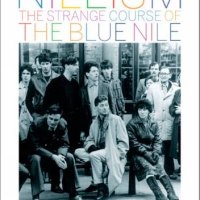2014 [continued]
Since I was coming to “The Next Day” almost a year late, by the time I purchased, I encountered the “Extra” disc at the same time as the album proper. I did appreciate that the new songs were available as a separate download for those who didn’t want to buy the album twice. That was pretty considerate. I also liked that the first three bonus tracks were no longer following “Heat” on the main album. Instead, they were relegated to the second disc. Better still was that the postscript for the album was pretty strong it its own right. In fact, to these ears, “The Next Day Extra” was at least as good as “Reality,” if not better. It began with a pumping rocker that dared me not to dance to it. “Atomica” trafficked in direct, mainstream rock while eventually going off the rails as Bowie managed to cram too much verbiage into its lyric. The enervated song manages to get stuck in my cranium for days at a time, and is probably a good example of what the Pet Shop Boys jokingly call “moronic.” A song with a blatant, obvious beat that as the lyric references “stabbing away.” The lyrical imagery give it a workmanlike air; as if Bowie were hacking his was through the rock underbrush with a machete. And it still pulls me in.
 The James Murphy remix of the album track “Love Is Lost [Hello Steve Reich Mix]” was a masterstroke of a Bowie remix. Possibly the first and last as I’ve only heard a few over the years and none of them were anything to write home about; unlike this one. While the original evoked the Harmonized drums of “Low” this track was re-built from the ground up over almost ten and a half minutes using a samples and edits of Murphy’s re-recording of Steve Reich’s “Clapping Music.” hence the title. Then there was a minimal electro music bed to build up to Bowie’s vocals, which were the only element used from the original. At the halfway mark, the song erupted into full bloom, and where the original referenced “Low’s” famous drum sound, this time Murphy added the famous treated piano from “Ashes To Ashes.” The remix managed to be worth the 10:20 spent listening and has supplanted the original to my ears. In fact, it’s hard for me to remember the LP mix.
The James Murphy remix of the album track “Love Is Lost [Hello Steve Reich Mix]” was a masterstroke of a Bowie remix. Possibly the first and last as I’ve only heard a few over the years and none of them were anything to write home about; unlike this one. While the original evoked the Harmonized drums of “Low” this track was re-built from the ground up over almost ten and a half minutes using a samples and edits of Murphy’s re-recording of Steve Reich’s “Clapping Music.” hence the title. Then there was a minimal electro music bed to build up to Bowie’s vocals, which were the only element used from the original. At the halfway mark, the song erupted into full bloom, and where the original referenced “Low’s” famous drum sound, this time Murphy added the famous treated piano from “Ashes To Ashes.” The remix managed to be worth the 10:20 spent listening and has supplanted the original to my ears. In fact, it’s hard for me to remember the LP mix.
“Plan” was a fragmentary piece that was one of the early bonus tracks. It was clearly a vibe in search of a song and its 2:00 length was perhaps even tad generous. “The Informer” was an intriguing number that eventually gets down to the same theme of questioning religion that has run though his career like a red thread of continuity since the earlier days by the time it ended, but not before some thoroughly delicious backing vocal harmonies swooped in to delight along the way, sounding like close cousins to those found of “Absolute Beginners” albeit in a much more interesting song.
The second remix here was for one of my favorite songs from the album. The Venetian mix of “I’d Rather be High” didn’t radically remix the tune like Murphy did, but it did bring in new instrumentation [harpsichord] and some sumptuous choral backing vocals to change the complexion of the song while leaving its essence intact. Ultimately, it can be chalked up as another successful Bowie remix, though not as dramatic as the “Love Is Lost” remix.
“Like A Rocket Man” was another vaguely sci-fi title that managed to re-appropriate Elton John’s appropriation of “Space Oddity” in a song that also thought nothing of lifting the melody from The Beatles’ “Help!” The chirpy feel of the music bed put this one on a similar shelf as “Everyone Says Hi” from “Heathen.” It was in direct contrast with the lyrics which marked it as a look back at the influence of cocaine in his life. The juxtaposition was dramatic as the sound of this song couldn’t be further from a cocaine vibe.
“Born In A UFO” was maybe the one song here that seemed a little shopworn compared to its surroundings. It also marked the final time that Bowie had dredged up his “Anthony Newley Voice” for one last go-round. My favorite of all of the “Extra” songs was a track that was originally on the Japanese CD of “The Next Day.” “God Loves The Girl” was another look back at maybe “Underground” which was redeemed by dropping the backing vocals into a more subtle and queasy use of the Bo Diddley rhythm that had driven the far more chaotic favorite “Panic In Detroit.” The lyrics seemed to concern the legendary “whorenun” that Dieter dreamed of on “Sprockets.” This “sister of mercy” seemed to have a violent playmate who claimed that “I don’t want to hurt you, I only want to have some fun.” “So She” was almost as fragmentary as “Plan,” with the exception that it had vocals. It managed to attain a vibe similar to “Days” on “Reality.”
These new songs were certainly good, but they disappointed in that when I had last heard Bowie, he was taking off into the jazz stratosphere with “Bring Me The Disco King.” This music was serviceable; even memorable. Still, one could not shake the sensation that however satisfying it was, there was a layer of compromise and, yes a bit of self pastiche that made it all a little safe. Bowie at his best always managed to balance the new and the familiar. No matter how avant-garde his inspiration, his innate musicality insured that his audience would not get lost along the way. He specialized in synthesizing the latest explorations that were out there with everyday rock music. This was his strength. He was not a “first to market” guy. Often, he was the second musician to pick up a thread some cult artist was exploring and make it palatable to the masses. Here, one got the sensation that this was an exercise of getting back in the saddle after a decade off, just to see if he could still do it. The question remained… what would he do for an encore?
Next: …Everything and Nothing







![Chris Cross: 1952-2024 [part 2]](https://postpunkmonk.files.wordpress.com/2024/04/ultravox-cross.jpg?w=200&h=200&crop=1)




I think you’re spot-on with the songs from TNDX. I really, really love “Atomica,” The LIL remix, and “God Love the Girl” in particular. “Born in a UFO” was kind of a companion piece to “Dancing in Outer Space,” with both of them being kinda head-scratchers to me. Bowie is not an artist who puts his b-sides on his b-sides, I guess. I was just thrilled to have more Bowie, and such diverse and interesting Bowie at that!
LikeLike
TND Extra was a great insight into what was going on inside Bowie’s artistic mind. I really appreciated the focus on Rock and Roll tunes and found some of the lyrics to be really masterful. The Extra tracks that were most attractive to me were the remixes. The Venetian Mix Of I’d Rather Be High is masterful, while the James Murphy remix of Love Is Lost is simply a sonic masterpiece. Some elements of Blackstar’s title track bring me back to this remix. The mood changes and defined “sections” especially. The Ashes To Ashes motif is simply inspired and expands the breath of the lyrics – what lyrics are left.
I will agree with the sentiment that if I had been expecting a followup to Reality, I would have hoped for an expansion of the aural plane which Bowie alluded to on Bring Me The Disco King. I have to believe this was still inside him aching to be released and my faith was to be rewarded a year later in 2014.
LikeLike